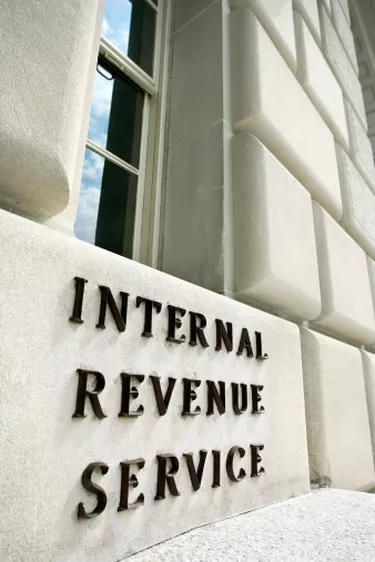
Money lost on investments can be tax deductible and as such reduce your tax burden. Many investors sell losing positions in December as the fiscal year closes so they can take a deduction when they file their tax returns. But suppose you imagine that investment will eventually turn around in your favor. You might consider selling in December so you can write off the loss and then buy it back a few days later starting afresh. Unfortunately, doing so would be considered a wash sale by the IRS and losses from the original sale would not be deductible.
Wash-Sale Rule
Video of the Day
An investment that is repurchased within 30 days of selling is considered a wash sale by the IRS. This means that if you quickly buy back essentially the same investment after selling for tax deduction you cannot deduct the loss. Let's say, for example, you own a losing position in the company XYZ. On October 20 you sell this position for a loss so that you can take a tax deduction on it. Then, on November 5 you buy back the exact same number of shares you sold in the same company because you also hope the share price will grow. By repurchasing an identical investment, a wash of the original sale incurs and you will be ineligible for a tax deduction on the original sale.
Video of the Day
Repercussions
The 30-day wash-sale rule incurs three important repercussions. First, a loss cannot be deducted when the same investment is repurchased within 30 days of a sale. Second, the loss from the first sale carries over to the new position when it is repurchased. Lastly, the time you held the original investment carries over to the new investment. The time you hold an investment is referred to as the holding period.
Investment Holding Period
The last repercussion of a wash sale can be a bit confusing. Understand that under IRS rules, a long-term loss is treated less favorably than a short-term loss. Because of this, a tax payer may wish to find ways to turn a long-term loss into a short-term loss by selling an investment, repurchasing that same investment, and then selling it again in order to claim the loss as short term. Because the holding period of the original investment carries over to the repurchased investment, it is not possible to claim a short-term loss using a wash sale.
Options Contracts
Another way tax payers might try and get around the 30-day rule is to sell their original investment and then reinvest in the same company using a different type of investment instrument, such as options contracts. The IRS, however, considers similar investments in the same company a wash sale even if the type of investment instrument is different.
Alternatives
There are a couple of legal ways around the 30-day rule of buying and selling stock. Of course the first way is fairly obvious, just wait 31 days before re-buying. A second way is a bit messier. Assume you are convinced a company you are invested in has reached a solid price bottom in the markets. You can buy the same number of shares you already own, essentially doubling down, with the intention of selling the original investment 31 days later while hanging on to your new shares. Of course the downside to this method is, you could be wrong about the price bottom and your losses would double if the share price continues to drop.